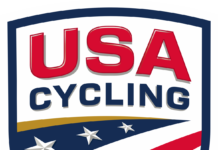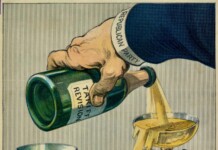 The push for Bicycle Friendly Businesses (BFBs) in Utah and Idaho seems to have shifted into a lower gear – at least temporarily. The number of awardees in the latest announcement of the BFB from the League of American Bicyclists (LAB) has dwindled, despite ongoing efforts of local bicycling groups to push the program. In the August announcement, only one Utah company earned the status. And Boise, where bicycling advocates have made a concerted effort to make their town the most bicycle friendly community in the country for businesses, added only two. In LAB’s spring pronouncement, Boise won six and Utah seven.
The push for Bicycle Friendly Businesses (BFBs) in Utah and Idaho seems to have shifted into a lower gear – at least temporarily. The number of awardees in the latest announcement of the BFB from the League of American Bicyclists (LAB) has dwindled, despite ongoing efforts of local bicycling groups to push the program. In the August announcement, only one Utah company earned the status. And Boise, where bicycling advocates have made a concerted effort to make their town the most bicycle friendly community in the country for businesses, added only two. In LAB’s spring pronouncement, Boise won six and Utah seven.
Boise had been racing with Pittsburgh to sign up the most BFBs until they were eclipsed last spring by a major effort by Fort Collins, CO, which surged ahead of them as the city with the most BFBs. Even in this August announcement, Fort Collins pulled even further ahead, winning five new BFBs. Now Fort Collins leads the nation with 48 BFBs, with Boise in a distant second with 36 and Pittsburgh in 3rd place with 34. (LAB also rejected a few applications from Boise this round.)
But the setback may be temporary and caused by some changes LAB is making in its procedures. “This round was a shorter round, only open for a month because we just released a new application” which LAB wanted to test, explains Amelia Neptune, LAB’s BFB program manager. “We got 113 applications in a month but nearly 200 in the last round so it’s not surprising you’re seeing smaller numbers….I wouldn’t despair. In the previous round, we got a ton of applications from Utah. That’s more indicative of what we’ll see.”
LAB is also shifting from a biannual to a quarterly awards schedule, with the next deadline Oct. 1, with another in December, Neptune says. LAB also initiated an application fee for the first time this summer, which ranges from $50 to $500, depending on the number of employees. Will the fee discourage potential applicants? “I’d hope not. We were getting so many applicants, we were struggling to keep up,” she says, while acknowledging the fee may burden small businesses. “We are hoping it means they wait to apply until they are really ready. We used to get a lot of applications from businesses that were not bicycle friendly and they know they were not bicycle friendly but they wanted feedback to know where to start. So we are releasing new materials to help them. We’re seeing stronger applications now. (Businesses) don’t want to waste their money on an application that won’t result in an award,” Neptune explains.
“The application fee will in part support the league effort across the board but the majority will support the (BFB) program, (allowing us to) hire more staff and get the best software to keep up with the amazing demand we are seeing,” she adds.
Phil Sarnoff, executive director of Bike Utah, says he still supports the program but the fee “makes it quite a bit more challenging to get businesses on the fence to apply…We haven’t really been pushing it; we’ve been raising funds for other programs…It’s still on our radar but when you have one person, you can only do so much.”
The Boise Bicycle Project and Boise GreenBike have been working on a effort to recruit 100 businesses and lead the nation in BFBs. “We’ve been going around on our own pro bono without any compensation or support from the city,” talking to employers one on one, says Project Executive Director Jimmy Hallyburton. Boise’s city government is a hard one to get involved because county and state governments – not the city – own the roads and the city government historically has taken relatively little interest, therefore, in transit. It seems to be one of the few cities of its size without a staffer dedicated at least part time to bicycling issues. The project now is trying to get the city, Boise Metro Chamber of Commerce and Downtown Boise Association to help out,” Hallyburton explains.
“Last round was definitely quite a bit slower but we hope working with the city will put us back on track and give us clear goals,.”Hallyburton continues. “Going door to door is great but it means we were not working on fixing bikes or getting bikes to refugees….Doing something like this on top of what we are already doing is definitely a challenge….Our main focus at the Bike Project is teaching bicycle repair and getting people riding.”
In addition to selling the concept to businesses at brown bag lunches, Hallyburton says he finds it helps if he reviews applications before businesses send them. “Sometimes they didn’t see something that would help them, such as a contribution to our organization,” he notes.
Pittsburgh’s push also slowed. It added only one new BFB and that came at the bronze level, the lowest level award (below diamond, platinum, gold and silver). But Bike Pittsburgh, the local advocacy group has been pushing the program in a unique way. It limits its push to employers it can do other business with. “The big difference is that Bike Pittsburgh has BFB consultation built into our revenue-generating business program. We’re not going to spend time and staff resources doing outreach unless that business is financially supporting Bike Pittsburgh,” explains Dan Yablonsky, the group’s business & education program coordinator.
Bike Pittsburgh helps businesses go through the BFB application process if they participate in a sponsorship program and advertise “if they want to get their business in front of our constituency,” or support Bike Pittsburgh financially. “Every application round, there may only be a few ready to apply,” Yablonsky explains.
The BFB program “is great because it gives us goals to work toward and also ranks our city nationally,” Yablonsky says. But he says the flaw lies in that LAB does not provide financial help to local advocates to push the program. “We have to pay staff. There’s not a financial incentive.” And therefore Fort Collins, Boise and Pittsburgh lead the nation as opposed to other larger cities with active bicycle infrastructure and culture. “That’s why New York and Chicago don’t participate. That’s why even Portland (OR) with its bicycle culture, doesn’t participate. LAB doesn’t encourage these cities to build it into their program.”
Bike Pittsburgh developed its own way to finance it “but that’s a mode that isn’t really out there in the country,” Yablonsky says. It costs the group more than $250,000 a year.
So what can LAB do to encourage state and local bike groups? LAB is planning to try a deal this fall with MassBike, the Massachusetts Bicycle Coalition, that will allow businesses to apply for a free or reduced-price application if they join the coalition. MassBike and LAB were still working out the details as of this writing.
After a certain point, growth may become harder. “In a community trying to push BFBs, it is really easy at first to find businesses that really care. You can find those business owners who are passionate bicycle (advocates). Once you have exhausted those low hanging fruits, it can take a while to cultivate BFBs among business owners that haven’t thought about it yet. I would not be surprised to see a dip in cities like Boise. You can’t become bike friendly overnight,” Neptune says.
And LAB asks jurisdictions that apply for bicycle friendly community (BFC) status on the application how many BFBs lie in town. “A low number or zero is not as good as having a concerted effort to partner with local businesses to improve bicycle friendliness,” Neptune says. (Fort Collins is one of only four communities to achieve platinum, while Boise reached silver and Pittsburgh bronze – see a pattern?) It works both ways: when a community wins a BFC award, LAB generally sees an increase in BFB applications from within its borders.
“I want businesses to do this for the right reasons,” Sarnoff says. “The challenge I hear from businesses is ‘what do you get for it?’ Recognition is one thing but if you become a BFB, do you get access to a pool of bargains, bicycle storage racks, whatever?”
And what of the idea of getting BFBs to encourage others to apply? “I could see that working,” Sarnoff says. But “most businesses have their own interests in mind. We could tell them if we help them, then they’ve got to help someone else. But it’s a lot to ask a business after they’ve gone through the application process.”
Salt Lake City, which won nine new awards a year ago, won none this round. Utah’s only new winner this round, Quality Bicycle Products West of Ogden, which was one of only four new awardees to reach platinum. Quality became the first platinum BFB in Utah. The awardee, however, is in the bike manufacturing business and reflects the lack of diversity among BFBs in Utah – almost all the awardees are directly involved in the bicycle business.
Quality’s main office in Bloomington, MN had already reached platinum status, so “it wasn’t a surprise to us that their western location (would also achieve platinum),” Neptune says. “It was a really strong application. They do a lot of great local bike advocacy. (Ogden has achieved bronze status as a bicycle friendly community.) They have facilities like indoor bike parking, showers, lockers, access to bike tools, workstands.” Quality also impressed LAB with its Power Bar vending machine “so employees can fuel up before they ride home,” Neptune notes. “They have incentives for employees to ride. They offer discounts on their products, drawings for prizes to bike to work and free access to demo bikes, helmets and locks” for employees.
Bicycle Friendly Business Awards for Fall 2014
Platinum
Quality Bicycle Products – West, Ogden, new
Silver
Foerstel, Boise, moved up from bronze
Hawkins Companies, Boise, new
Idaho Power Company, Boise, renewal
Salt Lake City Bicycle Company, Salt Lake City, renewal
Bronze
Petzl America, Salt Lake City, renewal
Honorable Mention
Capitol Dental, Boise
For more information on the Bicycle Friendly Business Program, visit: www.bikeleague.org/business







